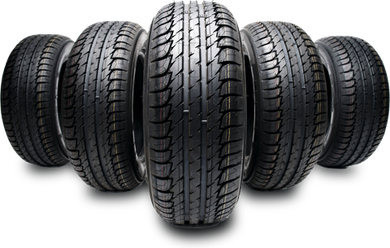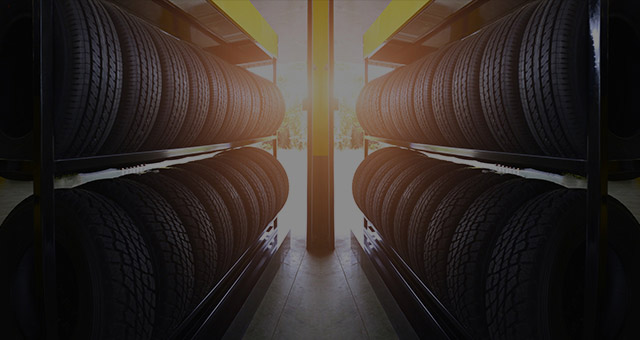Morris Tire and Alignment: Your Trusted Source for Reliable Service
Morris Tire and Alignment: Your Trusted Source for Reliable Service
Blog Article
Tire Service: Understanding Tire Stress Tracking Systems
Comprehending Tire Stress Monitoring Systems (TPMS) is an important aspect of maintaining optimum vehicle performance and safety and security on the road. With advancements in automobile innovation, TPMS has actually ended up being a conventional function in contemporary automobiles, giving real-time info on tire pressure levels. Delving deeper right into the complexities of TPMS, one can discover the numerous elements that compose this system and the relevance of each in ensuring exact surveillance. From straight to indirect TPMS systems, the landscape of tire pressure surveillance varies, each with its distinct collection of considerations and benefits. Keep tuned to unravel the complexities of TPMS, from upkeep tips to the undeniable benefits of maintaining your tires properly inflated. tire shop morris.

Relevance of TPMS
The relevance of Tire Stress Monitoring Equipments (TPMS) lies in their ability to improve vehicle security and performance through real-time surveillance of tire pressure levels. Keeping the right tire pressure is vital for making certain optimal handling, braking, and general safety of a car. TPMS gives chauffeurs with prompt comments on any type of underinflated or overinflated tires, permitting timely modifications to be made.
Components of TPMS
Comprising numerous crucial elements, a Tire Stress Tracking System (TPMS) operates as a sophisticated safety and security feature in contemporary cars. The main elements of a TPMS consist of sensing units, a control component, and a caution sign. Sensing units are generally situated in the tire shutoff stem or connected to the wheel assembly, where they measure tire stress and send data to the control module. The control component procedures this details and sets off a caution if it spots considerably reduced stress in any of the tires. The warning indicator, usually a sign on the control panel, signals the driver to examine the affected tire or tires. Some progressed TPMS models additionally show the real tire pressure readings for every tire, offering drivers with real-time information to ensure ideal tire performance and security. By keeping an eye on tire stress continuously, TPMS helps prevent accidents, reduces tire wear, and boosts fuel performance, making it an essential component for lorry security and efficiency.
Kinds of TPMS

On the various other hand, indirect TPMS depends on the automobile's wheel rate sensing units to check tire pressure. This system spots underinflation by comparing the rotational rates of the wheels. Indirect TPMS is less expensive than straight TPMS, as it utilizes existing sensing units within the lorry.
While direct TPMS supplies extra precise analyses, indirect TPMS is less complex in design and normally calls for much less maintenance. Both systems have their constraints and advantages, and the option in between them commonly relies on aspects such as price, lorry make, and individual preference. Comprehending the differences between these two sorts of TPMS can aid lorry proprietors make notified choices concerning tire maintenance and security.
TPMS Upkeep Tips
Reliable maintenance of TPMS is necessary for ensuring ideal performance and safety of your vehicle. Regularly evaluating the TPMS sensors for any damage or rust is essential. Make sure that the sensors are free and tidy from debris that can hinder their functioning. In addition, it is advisable to examine the sensor batteries occasionally and replace them as required to guarantee exact readings. Conduct routine checks on the tire pressure degrees and contrast them with the TPMS readings my company to ensure they are consistent. If there are any type of discrepancies, recalibrate the system adhering to the producer's standards. During tire turning or substitute, make sure that the TPMS elements are managed visit the website very carefully to avoid any prospective damage. Lastly, if the TPMS alerting light brightens on the dashboard, deal with the concern without delay by examining the tire stress and the general system for any mistakes. By adhering to these upkeep pointers, you can extend the life-span of your TPMS and enhance the security of your driving experience.
Benefits of Appropriate Tire Stress
Maintaining correct tire stress, as stressed in TPMS Upkeep Tips, is vital for reaping the many benefits connected with ideal tire pressure degrees. One of the key advantages of maintaining the correct tire stress is enhanced fuel efficiency. When tires are correctly pumped up, there is much less moving resistance, leading to far better gas economic climate. Additionally, appropriate tire stress makes certain also tire wear, extending the life-span of the tires and promoting safer driving problems. With the best tire pressure, lorries additionally have much better handling and grip, particularly in adverse weather condition conditions. This can improve general driving performance and safety and security for the vehicle driver and travelers. Maintaining optimum tire pressure can add to a smoother and more comfy ride by decreasing vibrations and sound triggered by underinflated tires. Finally, the advantages of appropriate tire stress surpass simply tire longevity; they incorporate improved gas effectiveness, enhanced security, better vehicle efficiency, and total driving comfort.
Conclusion
To conclude, understanding tire pressure monitoring systems (TPMS) is critical for preserving ideal tire stress and ensuring automobile safety and security. By recognizing the value of TPMS, recognizing with its parts, recognizing the various kinds readily available, adhering to correct upkeep pointers, and understanding the advantages of maintaining appropriate tire pressure, vehicle drivers can enhance their driving experience and lengthen the life expectancy of their tires. Appropriate tire pressure is crucial to risk-free and reliable lorry procedure.

Report this page